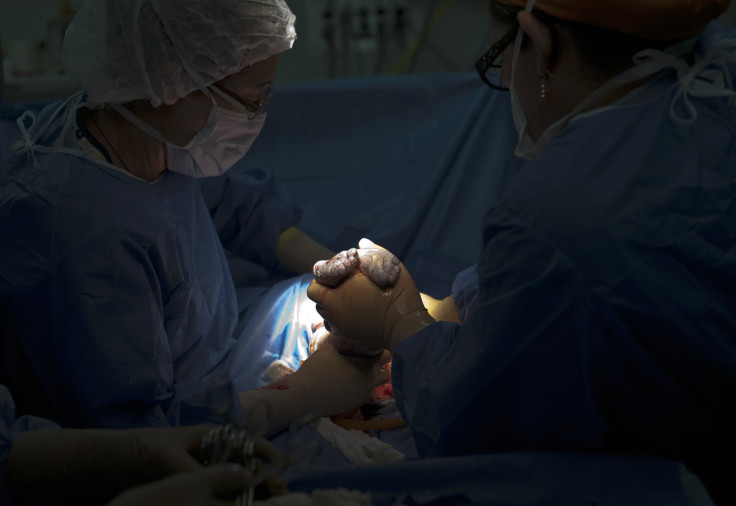En Caul Birth Myths: Rare Video Shows Baby Born With Amniotic Sac

In a rare case of a c-section birth in Asia, a baby was born inside the amniotic sac. An incredible video, which was filmed and shared on social media, shows doctors breaking the sac, which normally breaks at the start of labor, with their hands after pulling the baby out.
The two and half minute video shows the baby’s face pressing against the fluid filled sac as doctors carefully try to get the baby out. Watch the video here.
Fewer than one in 80,000 babies are born "en caul," when the sac of protective membranes which encases a baby in the womb does not break during birth. En caul births are different from caul births. In most common cases the caul covers the head and face, and sometimes loops around the ears of the infant. In some lesser occurring cases, the caul drapes over the head and partly down the torso of the child. However, during an en caul birth, the membranes completely cover the baby's body during birth.
The caul is harmless and is easily removed by the doctor, but during an en caul birth the main priority is to break the sac to allow the baby to breathe, since the baby no longer has oxygen supplied from being inside their mother. Doctors and mid-wives need to be careful while removing the caul as it might leave wounds on the infant's flesh, which may leave permanent scars, according to reports.
There are several myths associated with en caul births, below are few of them.
1. Some believe that an en caul birth is a sign of good luck.
2. An old mid-wives tale claims that en caul babies are clairvoyants, a term referred to those who allegedly have the ability to gain information about an object, person, location, or physical event through extrasensory perception.
3. Roman midwives used to sell cauls to lawyers, who believed having it in their possession would help them prosper.
4. In Dalmatia, it was believed that placing a caul under a dying person's bed would make one's passing easier.
5. Some also believed that possession of a baby's caul could protect a person from death by drowning.
© Copyright IBTimes 2024. All rights reserved.





















